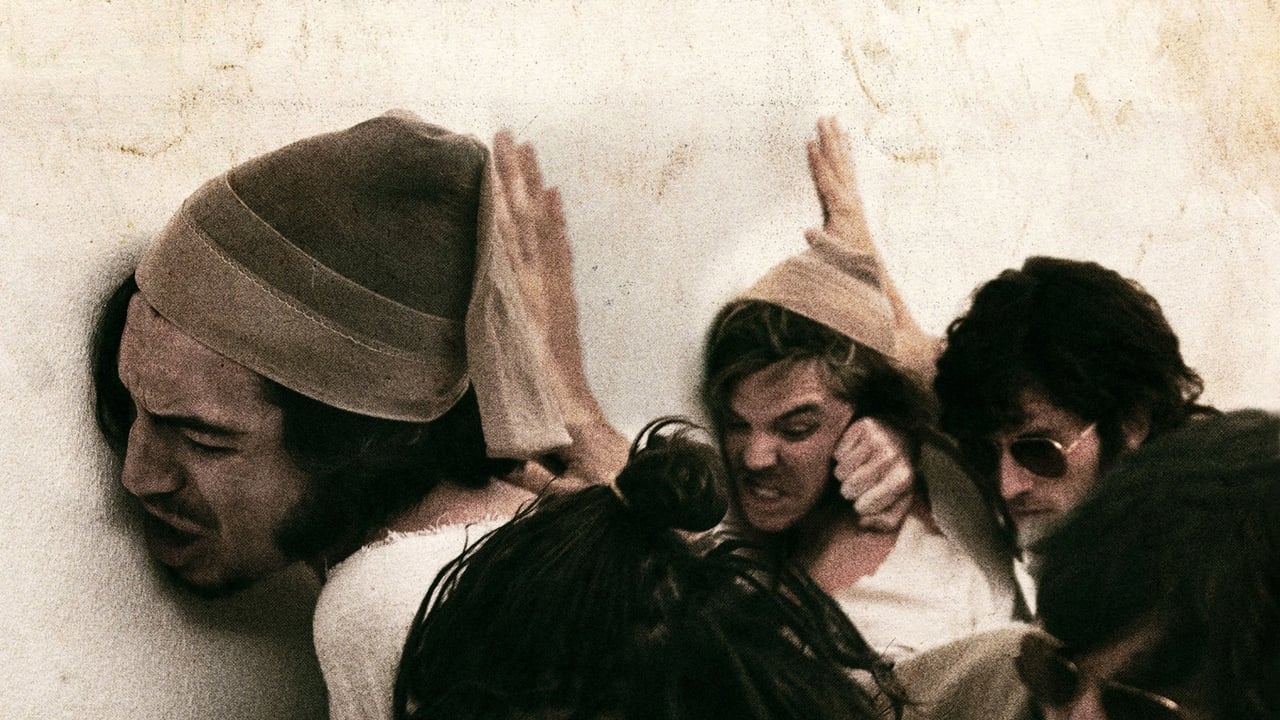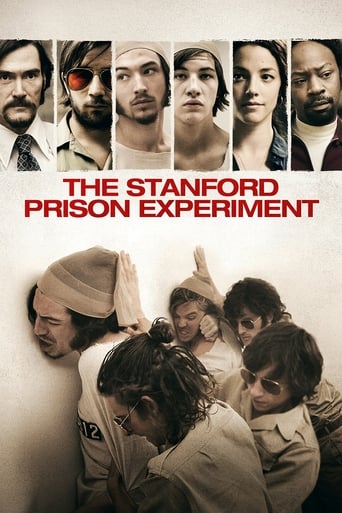

Load of rubbish!!
... View MoreBrilliant and touching
... View MoreThe story, direction, characters, and writing/dialogue is akin to taking a tranquilizer shot to the neck, but everything else was so well done.
... View MoreGreat movie. Not sure what people expected but I found it highly entertaining.
... View MoreOther than excellent acting by most, story was appalling, tho based on a true event. the only reason i made it thru the movie was to see before the credits role, what the outcome was. ill avoid spoiler alert. i DO NOT recommend this movie AT ALL.
... View MoreThe Stanford Prison Experiment movie portrays a real-life event instigated by the psychology department of Stanford University.In essence, the department decided to conduct a social experiment within which a bunch of students would be contained within a mock prison and would either take the role of prisoner of prison officer.The students were made to 'become' the role, and the movie covers the progression of how each student morphed into the mentality of either prisoner or police officer. It gets very brutal, and is somewhat amazing that it was ever allowed to take place past the first day (it lasted 6 days instead of the planned 14).The movie is historically accurate and does a great job of installing a sense of claustrophobia and a fear in the viewer. Upon viewing, some of the scenes seem far-fetched, but quick research will tell you that the scenes were based on actual events.A movie that will keep you gripped and appalled simultaneously.
... View MoreIntense and gripping, as well as a disturbing look into the human psyche.This psychological drama takes a compelling look into a warped reality experiment. While this would be interesting in fiction, the fact that it is grounded in an actual events raises it to the next level...to an uncomfortable level really.Acting is spot on from both the main cast and supporting cast.Directing is on point.Cinematography is straightforward and well done.Music is appropriate.The story is not only gripping but thought provoking as well.If you are looking for a feel good movie...this ain't it. Not a huge budget blockbuster, just good story telling. Only reason I don't give it a 10 is that while I was engaged in the story, it wasn't especially enjoyable. Free on Netflix, more than worth the time.
... View MoreI usually give 1 out of 10 stars in the bad movies. For me this movie is technically good. It has good pace, certainly nice scenery, interesting catchy actors, a nice color palette of gray, brown and dull green colors, as it represents the 70s. Also, it is based in the true events of the experiment held up in the Stanford university in 1971. The movie follows the true incidents in the "prison" space, the ones that happened in this famous university. I have seen the German version (which I think it was the best from any aspect, although I do not know if it is based in the case of Stanford university prison) called Das Experiment, also the American version of this, The Experiment (2010). What I liked the most in the German version and not in the two other American versions of this story, is the basic factor that urged me to rate this with one star. Money can give us a marvelous depiction of something in the technical part. If they (the producers and director) want us to believe in something, they must be perfect in the technical part for the film, so it is smoothly cooperated with our mind. Although in both documentary of BBC and this movie, the creator of this experiment, Philip Zimbardo, speaks about how it happened (he is also co-writer on this film) with details and in a spirited tone, he never seems to accept any kind of responsibility about what he has caused to these students being prisoners for six days under the submissiveness of their guards (students chosen with the flip of a coin). He only became famous, wrote many books and continue to works as a psychologist until today. In the movie, everyone is good in the end. Prisoners after all, will gradually forget what happened to them, and go on with their lives. This wicked treatment from the guards to prisoners, was a real thing. The crew that created the experiment along with Dr. Zimbardo watched this and did not want to stop it. They did not comply with the contract of this job, because they thought it was their right to abuse in such a way these human beings, that were treated after all like objects and nothing more. Americans used to apply these kind of experiments in their content, but also the American Army used to do it in other countries too. Until today, there are happening frightening and severe experiments to humans, experiments that are under the file "Confidential", in secret from the outer world. The U.S. government "was led" to undertake projects whose goal was to understand mechanisms of mass persuasion and the effects of coercion on an individual's self in order to "crack the code of human consciousness. The Stanford Prison Experiment is not a different case. It examined the possibility of destroying an individual's sense of self by attacking his sense of identity. When I said above that everyone is good in the end, I am referring to the fact that in the end of the film, it makes no difference, if director presents us how the good scientist and psychologist will smile to his wife, or how he later in his interview will admit that this experiment was good after all, that it had a deeper meaning after all the tortures, mistreatment and hail of abuse. To me it makes no difference, because I acknowledge that this was a crime and this movie only tries to rationalize it.
... View More